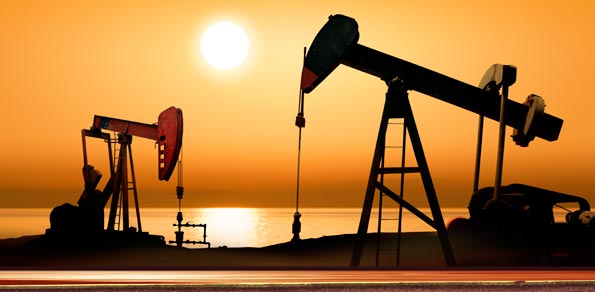The Ballad Of Jed Clampett
“Come and listen to a story about a man named Jed
A poor mountaineer, barely kept his family fed,
Then one day he was shootin’ at some food,
And up through the ground came a bubblin’ crude.
Oil that is. Black gold. Texas tea…”
The Beverly Hillbillies series starts with the OK Oil Company learning of oil in Jed Clampett’s swamp land and paying him a fortune to acquire the rights to drill on his land. Patriarch Jed moves with his family into a mansion next door to his banker (Milburn Drysdale) in the wealthy Los Angeles County city of Beverly Hills, California, where he brings a moral, unsophisticated, and minimalistic lifestyle to the swanky, sometimes self-obsessed and superficial community.
Other than the stereo typical Sheiks in cartoons such as Top Cat no other series displayed the simplicity and innocence of USA oil exploration as the Beverley Hillbillies and this despite the series’ popularity ironically being close to the oil crisis of the 70’s. All that ‘innocence’ is now a far distant memory, and if you’re Nigerian the cost of oil and domestic fuel must be a living nightmare today where the cost of fuel doubled overnight as the government subsidies were removed.
Nigeria is Africa’s biggest oil producer and the most populous nation, it’s now bracing itself for nationwide protests. The Nigeria Labor Congress and the Trade Union Congress of Nigeria will meet tomorrow to set a date for a strike involving tens of millions. Protests erupted yesterday in the market area of Yaba in the commercial capital, Lagos.
Nigeria imports most of its fuel because of a lack of refining capacity, it abolished 1.2 trillion naira ($7.5 billion) of subsidies on Jan. 1. That’s likely to more than double the price of unleaded gasoline to 140 naira a litre (0.26 gallon), according to the Petroleum Products Pricing Regulatory Agency.
About 64 percent of Nigeria’s population, which the government puts at more than 160 million, lives on less than $1.25 a day, according to data from the United Nations. Fuel stations in Lagos run by the state oil company, Nigerian National Petroleum Corp., are selling gasoline at 138 naira per litre. In Abuja, Forte Oil Plc (FO) stations in the centre of town were selling gasoline at 139.8 naira per litre.
The West African nation imports 70 percent of its fuel products due to a lack of adequate refining capacity. Nigeria has paid 3.65 trillion naira in domestic fuel subsidies since 2006, with more than a third spent in 2011, according to the Petroleum Products Pricing Regulatory Agency.
The government spent 1.35 trillion naira in the first nine months of last year, PPPRA chief Reginald Stanley told a parliamentary hearing on Dec. 2.
The fact that Nigeria has failed to use it’s vast mineral wealth to enrich its society is a criminal waste, the economic paradox it now finds itself in, were it has to import circa 70% of it’s fuel due to non existent refining capacity belongs in the face palm/room 101 of economic development short sightedness.
The practicalities of ‘waking up’ to a situation were the govt. subsidies are taken away on car fuel are unimaginable to most Europeans given the stealth methods govts have used to tax fuel over the past two decades but could USA citizens one day rise to great the day and find that their government had finally bowed to the inevitable, that increasing tax in line with their European counter parts is the only way they could raise enough tax to begin to balance their budget, reduce their deficit and claw back the insane levels of debt their country finds itself in?
In the UK close on 80% of the cost of a litre of fuel is tax, A 0.76p increase on the 1st January 2011 brought the duty rate for the main road fuels up to 58.95p per litre. This coincided with the 2.5% increase in VAT rate, which is now at record high of 20%. At current prices that’s circa 80 pence per litre of the price of 130 pence being in taxes. Comparisons with the USA are stark where only circa 41cents of the cost per gallon is in the forms of taxes and duties. That is an overall combined cost of circa ten percent, close on seventy percent less than the UK and European equivalent.
To suddenly apply European levels of tax on ‘gas’ at USA pumps overnight would place the country’s economy into terminal arrest, the shock would be irrecoverable. However, surely at some stage successive administrations have to grasp the nettle and face up to the fact that countries such as Nigeria can no longer be suppressed in order that the developed world enjoy their mineral fruits at a fraction of the comparative costs.
The age of Hillbilly innocence is over, the USA admin and it’s people need to begin to face up to the fact that the days of cheap gasoline are over. Beginning to tax responsibly and in line with other G7 nations now, as opposed to forcing impoverished nations to indirectly subsidise their nation’s massive consumption, will prevent the price shock and awe that will inevitably arrive.





